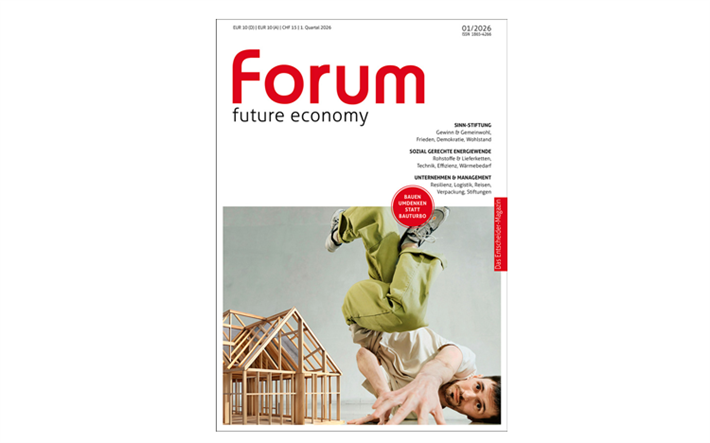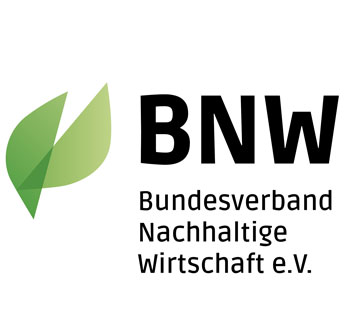Lifestyle | Geld & Investment, 30.12.2018
Bulls, bears and financial sharks
The Mindful Finance Walk at the Zoo
Money and mindfulness - two things that at first glance do not seem to really fit together. As a banker, Friedhelm Boschert spent his entire professional life in cooperative banks, most recently as CEO of a banking network in Eastern Europe. As a trained teacher of mindfulness and meditation, he now combines these two different worlds and founded the "Mindful Finance Institute" in Oxford together with two colleagues from Germany and America. In order to contribute to making banking (again) an integral part of society, contributing creatively to the solution of present and future problems. Mindfulness and awareness in financial decisions are the most important instruments with which the Institute wants to change both thinking, behaviour, and the orientation of the financial world.
 Recently at the "8th Conference on Sustainability and Resonsibility" in Cologne. I had already become very curious when I read about the "Mindful Finance Walk" in the announcement of the workshop, to be held at Cologne Zoo! So I put on my jacket and left the wonderful Cologne conference location to head over to the neighbouring zoo.
Recently at the "8th Conference on Sustainability and Resonsibility" in Cologne. I had already become very curious when I read about the "Mindful Finance Walk" in the announcement of the workshop, to be held at Cologne Zoo! So I put on my jacket and left the wonderful Cologne conference location to head over to the neighbouring zoo. "Much has gone wrong in banking. For a long time, sustainability and responsibility were not part of the management credo of all bank managers," said Dr. Friedhelm Boschert, starting his "Workshop in Motion" at the bear enclosure. No coincidence, because bulls and bears are symbols of the financial markets worldwide. "Even before the outbreak of the financial crisis, the EU Commission asked how the behavior of managers could be changed with respect to corporate social responsibility." says Boschert, explaining why he considers mindfulness one of the most effective approaches to transformation. "One of the astonishing results of a large-scale study was that forms of meditation based on introspection, i.e. insight, had a far more lasting impact on managers' thinking and behavior than the mere abstract-cognitive transfer of knowledge about ethics and values," Boschert said. "With mindfulness, you learn to direct your attention and thus manage to step out of old thought patterns and disturbing emotions. Only then will you be able to reflect deeply, recognize values, and tackle change. This is exactly what the Mindful Finance approach is based on." One of the participants asked critically whether the finance industry is at all open and ready for such changes. Boschert sees the pressure of suffering in the banks from bad image, fears, high employee dissatisfaction, lack of perspective large enough to venture into new approaches to solutions. "Banks are increasingly realizing that it is only in fear-free, open spaces for thought that new creativity can emerge and sustainable perspectives can be created," answers Boschert, while the little black bear behind him slowly climbs into the branches of the tree.
Next stop - the monkey enclosure. Dozens of baboons sit on sunny rocks. Suddenly the whole gang of monkeys gets excited, screams wildly, and runs in a pack around the rocks. Feeding time. Handed on a plate for Boschert, who invites the participants to a mindfulness exercise and first elaborated on the "monkey mind". "If in your head your thoughts rage through the jungle like the gang of monkeys behind us," explains Boschert with a laugh, "then you have no choice - and the Taoists already knew that 2,400 years ago, that's how old the term is - but to observe and watch. You simply can't get them to stop". It's better to take the "third person perspective" - let your thoughts run and focus your attention in such a way that you can observe thoughts and return to your focus. We then practiced exactly that. With Boscherts calm voice we tuned in with our breath, felt its regular flow and brought our attention back there again and again. We created a small oasis of silence behind the excited horde of monkeys and the much wilder thoughts within us.
 Soon we left grasshoppers, vultures and sharks behind us and stopped in front of a spacious enclosure by the elephants, the symbol of wisdom and strength. "What are we going to do with all this? Where are the concrete starting points so that applied awareness can become a transformative force in the financial sector, an in our handling of money as well," Boschert summed up the essential question in a nutshell. He said that the approach would be based on several levels. On a personal level, one would begin by saying that money and financial matters are highly emotional, often stressful matters for people. Instead of perceiving these emotions in a negative way and repressing them, it is better to use them as a valuable source of information for what we really think of money, what we want with our money. "This usually provides you with completely new information about yourself - and you can then deal with money more responsibly and without stress," sums up Boschert.
Soon we left grasshoppers, vultures and sharks behind us and stopped in front of a spacious enclosure by the elephants, the symbol of wisdom and strength. "What are we going to do with all this? Where are the concrete starting points so that applied awareness can become a transformative force in the financial sector, an in our handling of money as well," Boschert summed up the essential question in a nutshell. He said that the approach would be based on several levels. On a personal level, one would begin by saying that money and financial matters are highly emotional, often stressful matters for people. Instead of perceiving these emotions in a negative way and repressing them, it is better to use them as a valuable source of information for what we really think of money, what we want with our money. "This usually provides you with completely new information about yourself - and you can then deal with money more responsibly and without stress," sums up Boschert.At the financial professional level, Boschert points to the international association of financial analysts CFA, which has already integrated mindfulness into its training program in the U.S. and created the "Meditation Guide for Investment Professionals" for this purpose. "Don't think they're doing this as a kind of wellness program," says Boschert, "no, they want to use it to improve the quality of financial decisions. He quotes from the course reasoning: "to improve mental focus and creativity, promote ethical behavior, and overcome behavioral biases". This is the whole catalogue of requirements for responsible management and responsible leadership in banks. It also applies to private individuals who want to act more sustainably and responsibly with their investments and financial decisions. That is why the Mindful Finance Institute also turns to the customers of financial institutions. This is where the will to change must come from.
On an organisational level, mindfulness first and foremost helps employees and managers to cope better with pressure, stress and uncertainty. "We have empirically sufficient and reliable evidence from our previous training programs in companies," says Boschert. Several thousand managers have already been trained in mindfulness and in almost all cases have shown a better ability to concentrate, a significantly improved way of dealing with stress, and an improvement in team communication and collaboration.
Boschert used the so-called "High Reliability Organizations" to demonstrate that the mindfulness concept is nothing really new at a company level. In addition to aviation and rail companies, these concepts hvae been taught at power plants, chemical companies, and banks. "More than twenty years ago science already showed that companies with an awareness based risk culture control risks more effectively than through the use of excessive manuals and regulations. Due tothe complexity of risk, Mindful Finance applies today to almost every company, and especially to banks," says Boschert, summarizing the results of mindfulness research. The Mindful Finance Institute will cooperate closely with banks, in particular with regard to the necessary transformation of corporate culture.
"As you can see, Mindful Finance can contribute to a real paradigm shift in the financial industry. The Mindful Finance Institute will become a platform for all those who want to contribute to change," says Boschert as he concludes this unusual workshop. With a glimpse of the elephants leisurely wandering among the rocks, Boschert finishes: "More wisdom and awareness in financial decisions will make us all much more relaxed."
von Fritz Lietsch
As a banker, Friedhelm Boschert spent his entire professional life in cooperative banks, most recently as CEO of a banking network in Eastern Europe. As a trained teacher of mindfulness and meditation, he now combines these two different worlds and founded the "Mindful Finance Institute" in Oxford together with two colleagues from Germany and America.
Weitere Artikel von :
Lösungen für die Verteilnetze von Morgen
Verteilnetze - Schauplatz der Energiewende
Die Verteilnetze werden in immer höherem Maße
zum entscheidenden Schauplatz der Energiewende.
Die Gründe dafür liegen sowohl in der Stromerzeugung und -einspeisung als auch im Verbrauch.
Verteilnetze - Schauplatz der Energiewende
Die Verteilnetze werden in immer höherem Maße
zum entscheidenden Schauplatz der Energiewende.
Die Gründe dafür liegen sowohl in der Stromerzeugung und -einspeisung als auch im Verbrauch.
Accelerating Integrated Energy Solutions
…dieses Ziel verfolgt The smarter E Europe, Europas größte Messeallianz für die Energiewirtschaft.
Im Kontext einer zukunftsfähigen Energiewelt stehen erneuerbare Energien, Dezentralisierung und Digitalisierung sowie branchenübergreifende Lösungen für eine nachhaltige Energieversorgung 24/7 in den Sektoren Strom, Wärme und Verkehr im Fokus. forum präsentiert für Sie Themen, Highlights und Termine 2024.
…dieses Ziel verfolgt The smarter E Europe, Europas größte Messeallianz für die Energiewirtschaft.
Im Kontext einer zukunftsfähigen Energiewelt stehen erneuerbare Energien, Dezentralisierung und Digitalisierung sowie branchenübergreifende Lösungen für eine nachhaltige Energieversorgung 24/7 in den Sektoren Strom, Wärme und Verkehr im Fokus. forum präsentiert für Sie Themen, Highlights und Termine 2024.
Bayer in der Krise – wann nimmt der Größenwahnsinn machtgieriger Manager ab?
Der aktuelle Kommentar von Fritz Lietsch
Auf 38,7 Milliarden Euro belaufen sich die Schulden des Chemiekonzerns Bayer. Nicht genug, dass Bayer auf aggressive Weise sein genmanipuliertes Saatgut und sein giftiges Glyphosat durchsetzt. Jetzt stellt der Konzern auch finanziell eine Bedrohung dar – wie andere Konzerne auch, deren Manager mit ihrer Machtgier die Allgemeinheit schädigen.
Der aktuelle Kommentar von Fritz Lietsch
Auf 38,7 Milliarden Euro belaufen sich die Schulden des Chemiekonzerns Bayer. Nicht genug, dass Bayer auf aggressive Weise sein genmanipuliertes Saatgut und sein giftiges Glyphosat durchsetzt. Jetzt stellt der Konzern auch finanziell eine Bedrohung dar – wie andere Konzerne auch, deren Manager mit ihrer Machtgier die Allgemeinheit schädigen.
Ein Fazit nach 2 Wochen Klimakonferenz in Dubai
forum-Chefredakteur Fritz Lietsch verabschiedet sich von der COP 28
Diese Klimakonferenz war voller Widersprüche und damit ein perfektes Abbild unserer globalen Gesellschaft. Doch beginnen wir von vorne: Nach dem riesigen Zuspruch unserer täglichen Veranstaltungen in der „Bio-Villa" am Meer in Sharm el Sheik zur COP 27, waren wir nun auf der COP 28 mit unserem future economy forum Stand erstmals in der blue zone der COP vertreten.
forum-Chefredakteur Fritz Lietsch verabschiedet sich von der COP 28
Diese Klimakonferenz war voller Widersprüche und damit ein perfektes Abbild unserer globalen Gesellschaft. Doch beginnen wir von vorne: Nach dem riesigen Zuspruch unserer täglichen Veranstaltungen in der „Bio-Villa" am Meer in Sharm el Sheik zur COP 27, waren wir nun auf der COP 28 mit unserem future economy forum Stand erstmals in der blue zone der COP vertreten.
Was wurde eigentlich aus … 's Fachl?
Zukunft gestalten – Nachgefragt | Tops oder Flops in forum Nachhaltig Wirtschaften?
Seit 2007 stellt forum vielversprechende Projekte, Start-ups und Social Business-Initiativen vor. Häufig werden nur Mega Flops bekannt, wie etwa das Projekt Cargolifter, wo riesige Luftschiffe kniffelige Transportaufgaben übernehmen sollten. Nachfolgend zeigen wir die Entwicklung von mutigen Projekten, über deren Start wir schon einmal vor Jahren berichteten.
Zukunft gestalten – Nachgefragt | Tops oder Flops in forum Nachhaltig Wirtschaften?
Seit 2007 stellt forum vielversprechende Projekte, Start-ups und Social Business-Initiativen vor. Häufig werden nur Mega Flops bekannt, wie etwa das Projekt Cargolifter, wo riesige Luftschiffe kniffelige Transportaufgaben übernehmen sollten. Nachfolgend zeigen wir die Entwicklung von mutigen Projekten, über deren Start wir schon einmal vor Jahren berichteten.

forum future economy
forum Nachhaltig Wirtschaften heißt jetzt forum future economy.
- Mit diesem Schritt markiert der Verlag bewusst eine Zeitenwende – hin zu einer Wirtschaft, die Zukunft schafft, statt nur Probleme zu verwalten.
Kaufen...
Abonnieren...
08
DEZ
2025
DEZ
2025
09
DEZ
2025
DEZ
2025
Club of Rome Salon: Building the City of the Future (in English)
Cities, World Expos, and Stakeholders Driving Sustainability
10178 Berlin
Cities, World Expos, and Stakeholders Driving Sustainability
10178 Berlin
Anzeige

Professionelle Klimabilanz, einfach selbst gemacht

Einfache Klimabilanzierung und glaubhafte Nachhaltigkeitskommunikation gemäß GHG-Protocol
Digitalisierung
 Smartphones und Philosophie
Smartphones und PhilosophieWerden Handy-Verbote in Schulen und Altersgrenze bei Social Media Nutzung die Probleme lösen?
Jetzt auf forum:
Ökologische Stromproduktion aus Fließgewässern
Ab 14.12.2025 gilt der neue Fahrplan der Deutschen Bahn für 2026
Schulen stärken Bildung für nachhaltige Entwicklung
Seit 15 Jahren: faire und umweltbewusste Beschaffung mit dem Kompass Nachhaltigkeit















